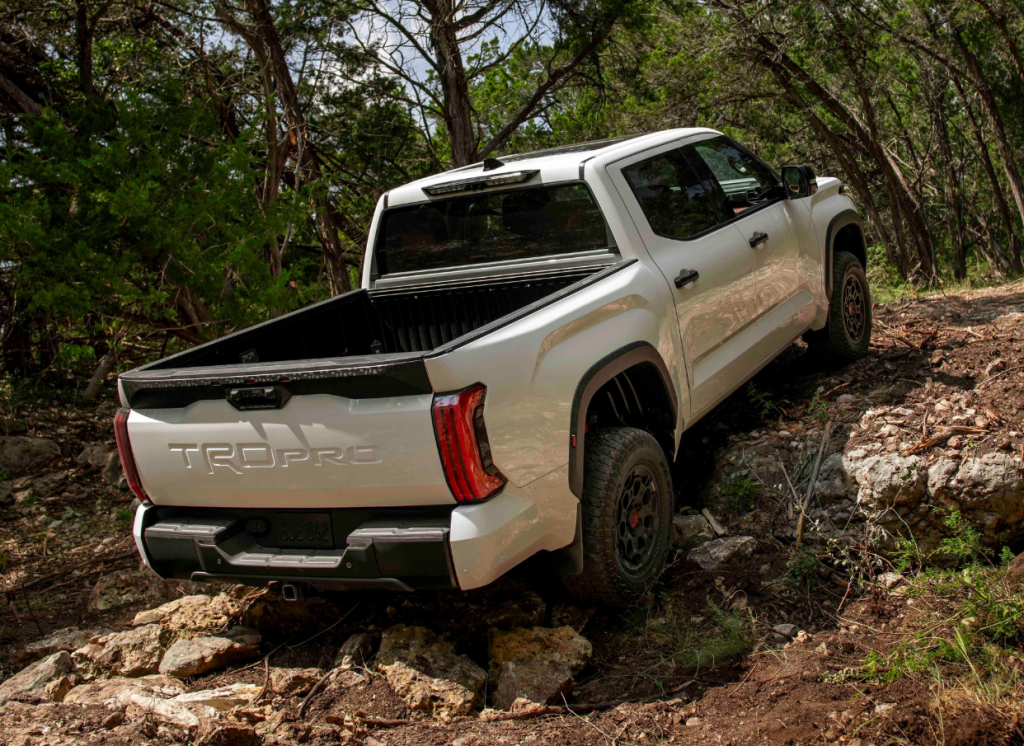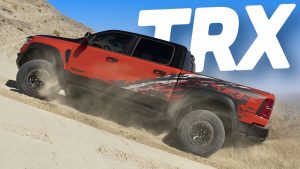Ford CEO Jim Farley has been saddled with the massive task of righting the Ford ship for the past five years. But things aren’t exactly going well, at least when it comes to quality. The company issued the most recalls of any brand in the U.S. in 2022, with 67 recalls, and the highest in 2023, with 54 recalls. Ford dropped to third place in 2024, beaten by Stellantis, but still issued 62 recalls that year. So far in 2025, it’s issued a gargantuan 104 recalls—far more than any other automaker.
Not only does bad quality reflect poorly on brand reputation, but it’s also costly. According to WarrantyWeek, the company spent over $10 billion—around one-fifth of the company’s entire value—in 2023 and 2024 combined fixing cars under warranty.
But according to Farley, those numbers shouldn’t be indicative of Ford’s current products. In a wide-ranging interview, he told the Detroit Free Press the majority of the cars subject to recalls right now were developed before 2020, when he first took charge of the brand. From the interview:
“I can’t do anything about that engineering. It’s in the field. All I can I do is deal with the problems quickly,” Farley said. “Anyone who says, ‘They should make the recalls go away.’ I can’t remake the vehicles that were made seven years ago. That’s not understanding the recall process. The recall process is when you have an issue in the field, dealing with it.”
Farley also mentioned that most of the recalls you see from Ford now are software-based. He cites this as an industry-wide issue rather than just a problem at Ford. Though I rarely side with CEOs, I’m inclined to agree with him here. Tesla recalled 5.1 million cars last year, but a majority of those recalls were to fix software-based issues, like incorrectly sized warning lights and rearview camera faults.

It’s tough to tell right now whether Ford’s current portfolio is any more reliable—the only way we’ll truly know is to wait five years to see how recall numbers and warranty spend play out. But Farley seems pretty confident he and his team have fixed the issues, going as far as to compare his vehicles to, historically, one of the most reliable car brands ever:
“Our durability of our powertrains that we’re testing are fully competitive, we believe, with the likes of Toyota,” Farley said. “Since I’ve been CEO, we’ve improved our quality of our launches. The Expedition and Navigator were our best launches in company history. We lost almost no vehicles and so far, as the vehicles mature in the field for six months now, we’ve had almost no recalls and very little issue with those vehicles. I would say we are making a lot of progress and it does take time.”
Seeing as how the number of recalls has only increased at Ford, it’s tough to rely solely on Farley’s word. But he’s not the only one noticing improvements. The Free Press also spoke to Chris Sutton, a senior vice president of automotive benchmarking at J.D. Power, who said Ford is now above the industry average when it comes to initial quality, which tracks quality after the first three months of ownership via owner surveys.
“What has been most encouraging is in this most recent study of IQS, both the F-150 and SuperDuty won their respective segments and so for Ford that has to be encouraging that they’re on the right track,” Sutton said.
Also, in J.D. Power’s Vehicle Dependability Study, which measures vehicle quality after three years of ownership, Ford is slightly above industry average.
“So both of those metrics would indicate progress in the last five years,” Sutton said.

“Above average” and “just as good as Toyota” are two very different things in my mind. Toyota’s luxury sub-brand Lexus ranked first overall in this year’s Dependability study published in February, while Toyota itself came in fourth (despite screwing up so badly it had to replace 100,000 engines last year). Ford, meanwhile, was all the way down in 13th, behind all four of GM’s brands, as well as Porsche, BMW, and Kia.
Personally, I’ve only ever owned one Ford, and it was trouble-free from the day I bought it to the day I sold it, even after a dozen track days and countless autocross events. But my dad’s Focus wasn’t nearly as pleasant. I’d like nothing more than to see Ford excel when it comes to dependability. Based on its history, I have my doubts. But going by these preliminary numbers, it seems things might actually be heading in the right direction.
Top graphic images: Toyota; Ford; DepositPhotos.com
Support our mission of championing car culture by becoming an Official Autopian Member.









Farley must have crossed his fingers behind his back when saying he believed Ford powertrains were equivalent to Toyota’s.
I remember the late 80’s when Ford’s slogan was “Quality is Job1!” Then their slogan was, “All of our vehicle names start with ‘F’ ! ” I thought it was a weird marketing step at the time.
I’m surprised nobody has made a parody of that ad, Quality is Job 192 or something.
I believe The Onion grabbed that opportunity two decades ago.
I wonder if they made fun of the F-word naming strategy….
Are we talking about the 3.4 TT V6’s that are blowing up? Then that sounds accurate.
I’m looking at fullsize trucks, and honestly, I’d put money on the 200K mile 4.0 V6 in my 4Runner lasting longer that any of these new truck motors starting at zero miles today.
I think the Ford 2.7 is a stout motor, but that wet belt is such an Achilles heel.
Just eat the .001mpg and throw a gearset in there instead.
One can Choose to believe anything they want, getting others to agree is another matter.
Well, that is WRONG in MANY WAYS.
The QC issues, the electronics can make or break reliability too.
Sure, the 2.7 EB is stouter than the Tundra’s engine, but that isn’t the point.
One unit hit 600k kms in an LC300, but that was probably maintained from top to bottom. Given the complexity they need a LOT of care.
The Hilux and LC70 definitely beat the Ford Ranger in reliability overseas (even with its own issues the Isuzu D MAX does). The Hilux is a lot simpler , and so less can go wrong. Same case with the Everest vs the Fortuner/Isuzu MU-X.
Both the Tundra and the F 150 HAVE TO IMPROVE IN QUALITY. QC regardless of truck brand is terrible now, so much so you need an extended warranty.
Well now, that’s not really the dunk that you think it is, Farly, considering all the issues Toyota’s been having with it’s latest Tundra drivetrains.
Everyone that has owned more than one Ford and/or more than one Toyota just got their day started with a good laugh.